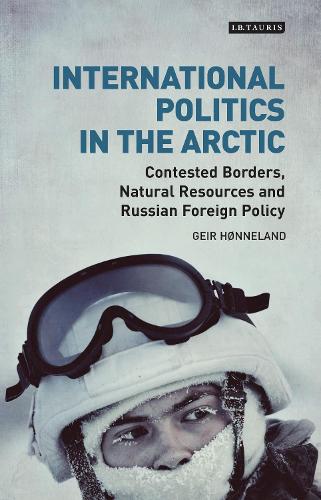
International Politics in the Arctic: Contested Borders, Natural Resources and Russian Foreign Policy
(Hardback)
Available Formats
Publishing Details
International Politics in the Arctic: Contested Borders, Natural Resources and Russian Foreign Policy
By (Author) Geir Hnneland
Bloomsbury Publishing PLC
I.B. Tauris
3rd October 2017
United Kingdom
Classifications
Tertiary Education
Non Fiction
International trade and commerce
International economics
Public international law: economic and trade
Petroleum, oil and gas industries
Diplomacy
Political structure and processes
Fisheries and related industries
Economics
Physical Properties
Hardback
416
Width 138mm, Height 216mm
647g
Description
As the ice around the Arctic landmass recedes, the territory is becoming a flashpoint in world affairs. New trade routes, cutting thousands of miles off journeys, are available, and the Arctic is thought to be home to enormous gas and oil reserves. The territorial lines are new and hazy. This book looks at how Russia deals with the outside world vis a vis the Arctic. Given Russia's recent bold foreign policy interventions, these are crucial issues and the realpolitik practiced by the Russian state is essential for understanding the Arctic's future.Here, Geir Honneland brings together decades of cutting-edge research - investigating the political contexts and international tensions surrounding Russia's actions. Honneland looks specifically at 'region-building' and environmental politics of fishing and climate change, on nuclear safety and nature preservation, and also analyses the diplomatic relations surrounding clashes with Norway and Canada, as well as at the governance of the Barents Sea. The Politics of the Arctic is a crucial addition to our understanding of contemporary International Relations concerning the Polar North.
Reviews
The book is an unarguably necessary read for any political scientist interested in how and why Russia operates in the Arctic. * Nordicum-Mediterraneum *
Author Bio
Geir Honneland is Research Director at the Fridtjof Nansen Institute and Adjunct Professor of Political Science at the Arctic University in Norway. He has published widely in Norwegian and in English on territory disputes and environmental factors in the Polar North. He gained his PhD from the University of Oslo in 2000 and is one of the most respected commentators in the field of Arctic Studies.
